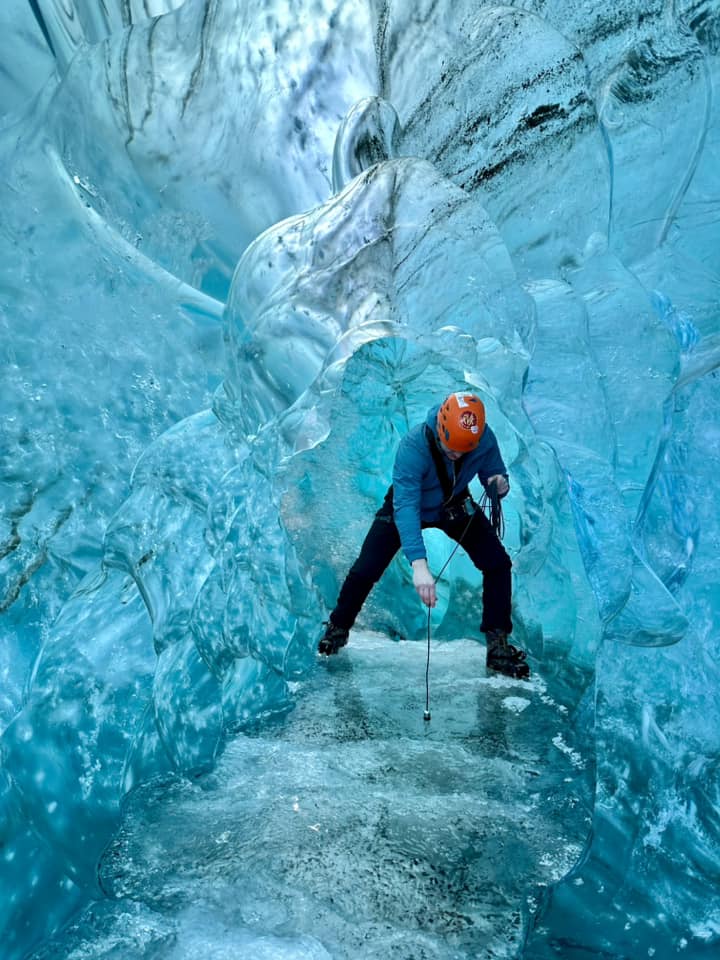Konstantine Vlasis: Harmonizing Nature and Culture Through Icelandic Soundscapes
In the realm of academia and exploration, University of Tennessee’s Natalie L. Haslam College of Music alumnus Konstantine Vlasis (MM Musicology ‘17) stands out as a unique figure. A Ph.D. candidate in music sound studies at New York University, Vlasis’s journey is marked by a blend of musical talent and environmental curiosity. His current focus? Using sound to research human ecology in the captivating landscapes of Iceland, with audio technology as his compass and traditional Icelandic songs as his guide.
Vlasis began his academic journey at Tennessee Technological University (BM Percussion Performance’14). He later pursued his master’s degree at our college, where his fascination with Iceland originated from his master’s thesis, focusing on the emergence of Icelandic musical traditions. Inspired by the sounds of Sigur Rós and the timeless poetry of Icelandic rímur, he embarked on a transformative journey that would significantly influence his academic pursuits.

Vlasis took a class with Leslie C. Gay Jr., associate professor of Musicology, on soundscapes, which proved to be a pivotal experience for him. Through it, he delved into sound studies and discovered the writing and research methods that individual scholars in the field have pursued. “Ethnography is a big part of my research methods,” Vlasis said, blending his roles as a composer and scholar.
Supported by grants from Fulbright, the National Science Foundation, and now National Geographic, Vlasis explores Iceland’s glaciers and traditional music. His current project, ‘When Glaciers Sing,’ creates immersive audio experiences that capture the sounds of melting glaciers and ancient songs, bridging the gap between past and present.
Since his first visit to Iceland in 2015, Vlasis has returned annually to work with local musicians and festivals. His research, combining ethnographic interviews and glacier sound recordings, offers new insights into the environmental impact and cultural significance of Icelandic landscapes.
Vlasis advises aspiring scholars and musicians to embrace innovation: “Be the change you want to see in the world. If it’s not something that exists, that just means it doesn’t exist yet. You can be the person to make it happen.”
More of his journey will be included in this year’s edition of the college’s annual magazine, Noteworthy. Stay tuned!